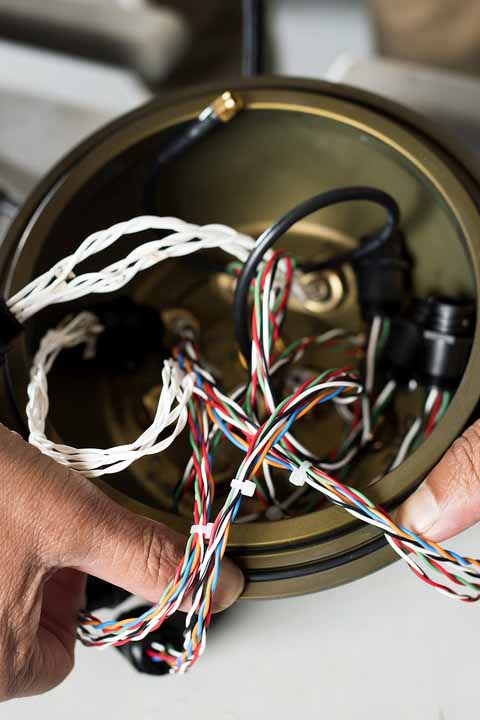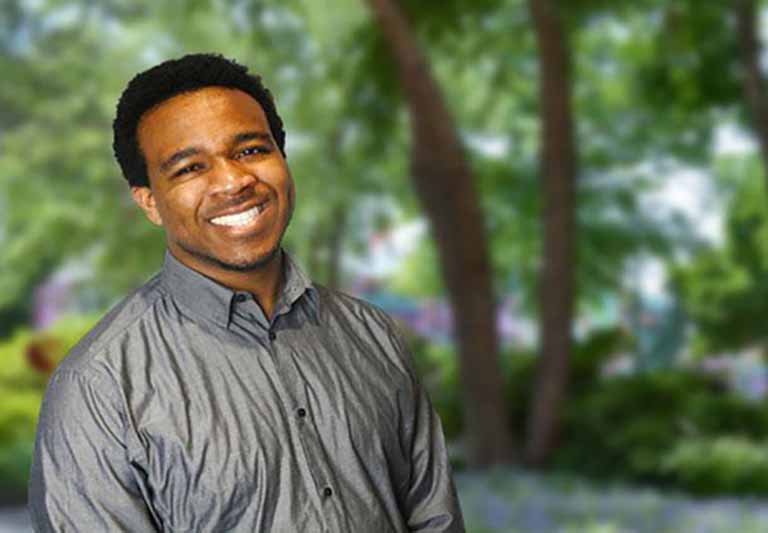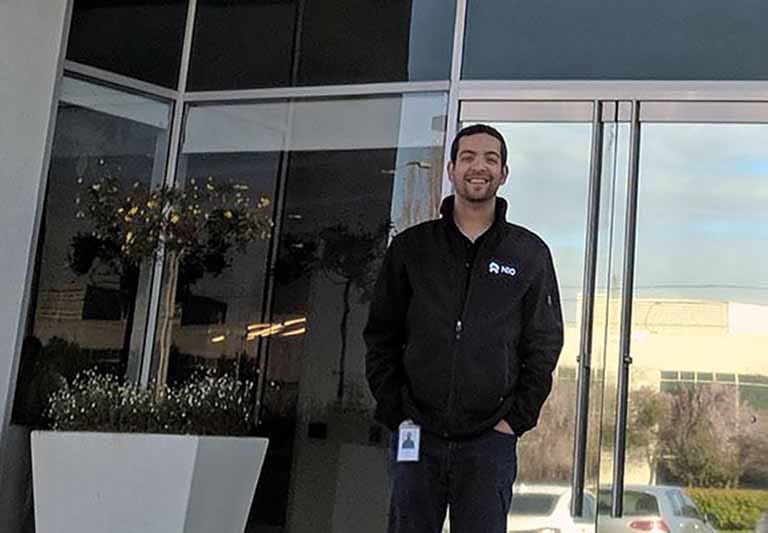
Academics
Offering BS, MS, and PhD Degrees
The department offers BS, MS, and PhD programs, as well as an experiential education including Northeastern’s world-renowned cooperative education program and research opportunities for undergraduate and graduate students. Accelerated master’s degree programs are available and graduate students can also take a graduate certificate in combination with a graduate degree program or as a pathway toward a master’s degree.
We invite you to learn more about our undergraduate and graduate programs.
Undergraduate Studies
You will learn to solve complex, open-ended problems methodically and efficiently. With a degree in electrical and computer engineering (ECE), you will develop the skills to break up challenges into solvable sub-problems and to formulate solutions that meet required constraints. Through research opportunities, cooperative learning, service learning, or study abroad, you will have the opportunity to apply what you’ve learned in classes taught by world-class faculty and apply them in real life. A degree in ECE from Northeastern will provide you with the tools for success regardless of your career path after graduation.
ECE is the most general purpose undergraduate degree in engineering that you can earn, preparing you for careers options as diverse as medicine, law, business, graduate study in engineering, or even as an electrical or computer engineer. Our discipline has three technical foundations: physics (encompassing circuits, semiconductor devices, and optical systems), computers (including microprocessors and computing devices), and Math (dealing with information, networks, and systems).
Within these three broad areas, over faculty perform world-class research ranging designing nano-scale antennas and next-generation secure computer systems to modeling the human visual system. These same faculty are dedicated to undergraduate teaching, and you will experience personalized instruction in small classes with integrated laboratories.
Graduate Studies
The graduate programs at Northeastern’s Department of Electrical and Computer Engineering are a cornerstone of the department. Located in the booming technology, medical, and research hub of Boston, Northeastern ECE provides excellent research and learning opportunities for its students and alumni. Northeastern ECE faculty and graduate students conduct world-class research at the forefront of electrical and computer engineering. ECE is home to experts in a variety of disciplines spanning the field of electrical and computer engineering.
Northeastern’s ECE department is the host or major partner in nine state-of-the-art research centers. Three of these centers are funded by the National Science Foundation and one by the Department of Homeland Security. Our PhD students produce cutting-edge research that result in presentations at prestigious conferences and publication in high-impact professional journals. The majority of PhD students receive financial support in the form of research assistantships, teaching assistantships, or department fellowships. ECE faculty and graduate students are deeply connected with the intellectual community of Boston and Cambridge. Our department features numerous collaborations with top-tier institutions such as MIT, Harvard, Draper Labs, and Massachusetts General Hospital to name just a few. Our research is also funded by numerous federal agencies.
Electrical engineers are developing the next generation of microprocessors, signal processing algorithms for DNA-matching, and ground-penetrating radars for detecting hazardous wastes.
Electrical engineering students at Northeastern study microelectronics, signal processing, power electronics and electromagnetics, fundamental elements of today’s information age that provide the tools that make these advances possible. As an electrical engineering student, you will build the strong foundation in science and mathematics necessary to succeed as an engineer.
Students with an electrical engineering degree are aggressively recruited by employers across the country, and the demand for electrical engineers is expected to increase in the next decade. Whether you want to work in chip fabrication, telecommunications, or radar system development, you can expect to find a wide range of employment opportunities throughout your career.
In the past ten years the internet has revolutionized all aspects of our lives, from the way we communicate to the way we do business. Wireless communication, online commerce, medicine, and multimedia are examples of new applications that have transformed our world. Computer engineers developed the fundamental technologies that made the web possible, including high performance microprocessors, gigabit networks and object-oriented computer languages.
As a computer engineering student at Northeastern you will study computer architecture, software engineering, computer-aided design (VLSI), microprocessor-based design, and applied algorithms. In addition to a broad background in mathematics, physics, and chemistry, this curriculum gives you solid foundation in both hardware and software design. RISC microprocessors, object-oriented Java and cellular networks are just three of the technologies you will encounter in the program.
Demand for computer engineers has increased dramatically in recent years. Students with a strong background in computer engineering are aggressively recruited by cutting-edge computer companies nationwide.
Besides the top quality education you will receive, Northeastern engineering students have the opportunity to gain real-world industry experience as part of Northeastern’s cooperative education program. This provides students the ability to test-drive careers in development and research, hardware and software, design and test. Co-op can take students to many of the leading technology firms and development laboratories in Massachusetts, the U.S., and even the world.
The value of cooperative education experiences cannot be overstated. On co-op, students will learn requisite skills that cannot be learned in a classroom, while helping to finance their education. Co-op experiences also help students select a career path that is right for them, while providing a competitive edge upon graduation.
Northeastern’s Boston location in the heart of a high-tech region provides our students with a number of unique advantages as well. Two of our master’s concentrations are also offered at our Seattle, Washington campus. The University has close ties with nearly all computer and electronic technology companies in the area, including several successful companies founded by Northeastern alumni.

